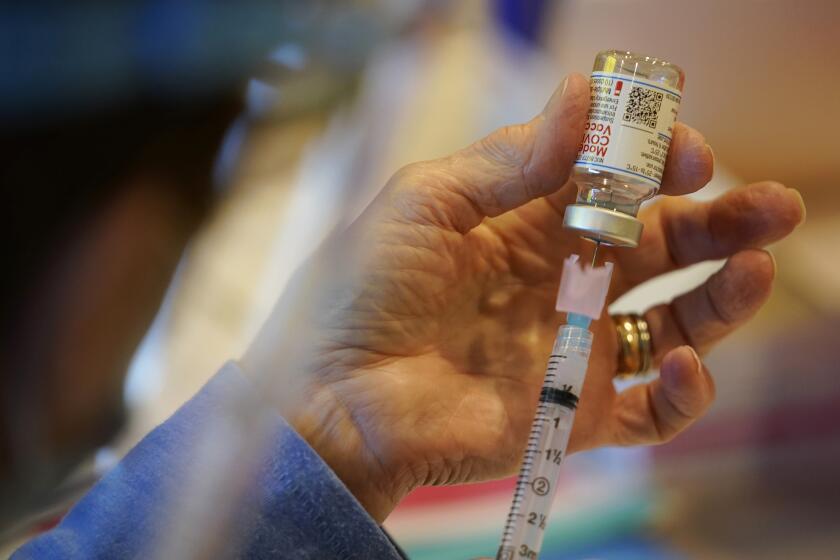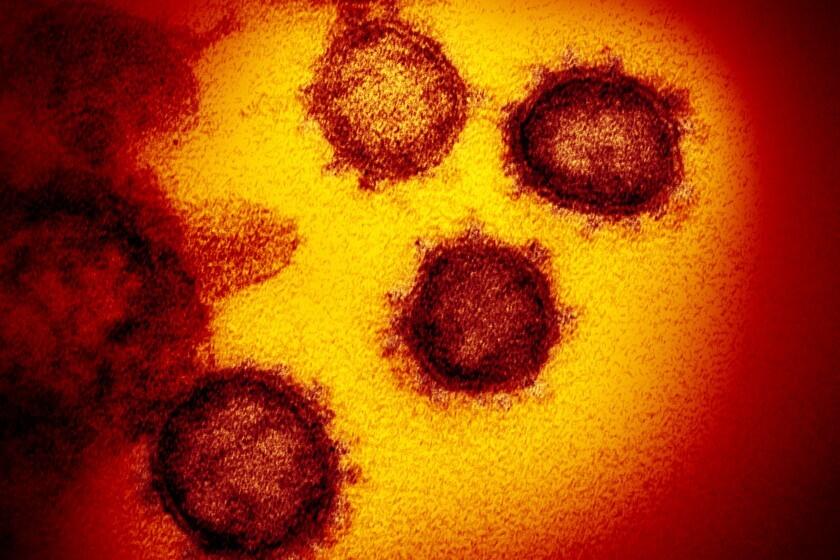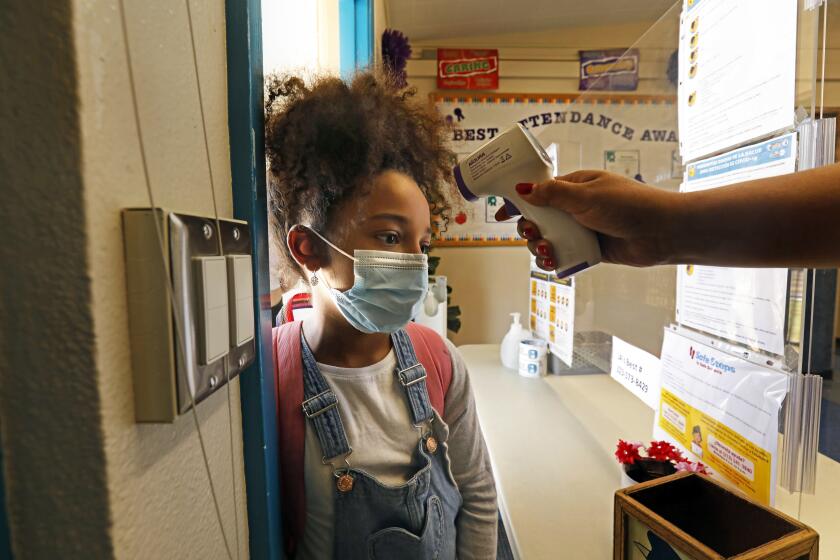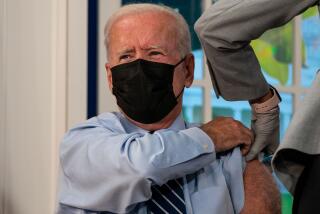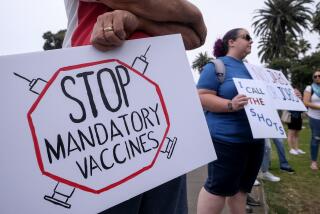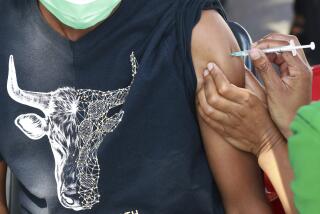What the Delta variant means for unvaccinated kids
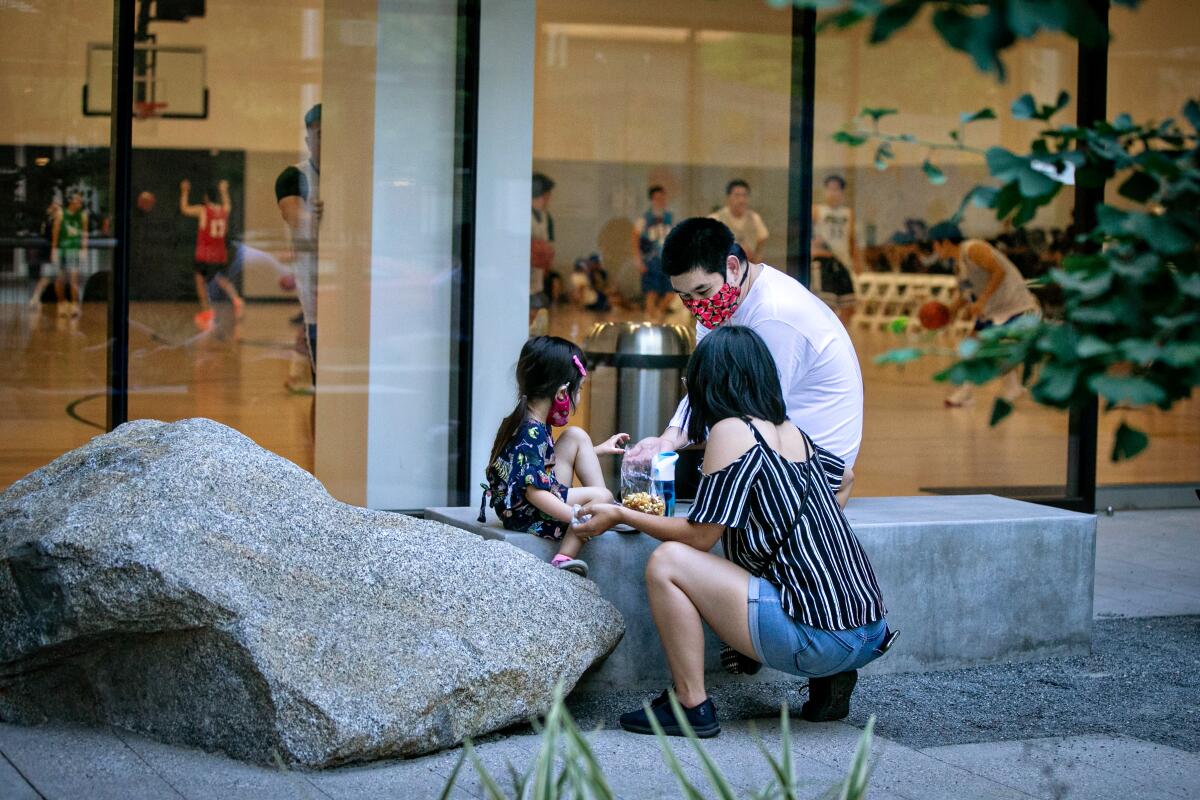
- Share via
If you are fully vaccinated and sending your kids off to camp or inviting their friends to sleep over, you might almost — almost — feel like the nightmare that was the COVID-19 pandemic is finally in the rearview mirror.
But dare to share this sentiment on a work call or with other parents on the playground and chances are some killjoy is going to bring up the dreaded Delta variant.
Delta originated in India and scientists estimate that it is 60% more transmissible than the Alpha variant from the United Kingdom, which in turn is 50% more transmissible than the original coronavirus strain.
That means Delta spreads more than twice as readily as the version of the virus that sparked the global pandemic.
It currently accounts for about 25% of all cases in the U.S., and White House chief medical advisor Dr. Anthony Fauci said he expects it to become the dominant strain of the virus in just a few weeks.
The scientific consensus is that fully vaccinated people are well protected from infections with the Delta variant. That’s great news for the 50.5% of Californians who received one dose of the Johnson & Johnson vaccine, or two doses of either the Pfizer-BioNTech or Moderna vaccines.
Lab tests and real-world experience offer reassuring evidence that COVID-19 vaccines offer a high level of protection against the Delta variant.
But what about kids under the age of 12 who are not yet eligible for any COVID-19 vaccine?
To find out more about how the Delta variant will affect the youngest children, I spoke with Keri Althoff, associate professor of epidemiology at the Johns Hopkins Bloomberg School of Public Health. She also happens to be a mother of three kids younger than 12.
On a scale of 1 to 10, how worried are you about the Delta variant spreading in the United States?
I don’t think a scale is necessary. It’s here and it’s spreading.
We don’t have to look into a magic ball, we can see what it has done to cases and hospitalizations in other countries. It is a highly transmissible variant and can cause substantial illness. That’s a bad combination.
Nearly 60% of Californians are at least partially vaccinated. Does that mean we are better protected from the Delta variant than people in other states?
Hooray California and keep going!
It’s amazing how fast we were able to vaccinate people. That being said, the virus is going to do its thing, which is to continue to infect people so it can continue its life cycle.
At this point we need to continue to do more targeted outreach for communities where the vaccination prevalence is very low. These communities are more vulnerable and we have to think about what this means for the populations that are not yet eligible for the vaccine, like kids.
The highly infectious Delta variant has become California’s most identified strain of the coronavirus, a troubling development.
So, it’s not just unvaccinated adults who have to worry. It’s unvaccinated kids too?
That’s a good question. We do know that children with coronavirus do not have the hospitalization and death rates of older adults. However, we are starting to recognize that comparing hospitalizations and death rates of kids to older adults is not appropriate anymore.
Instead we need to compare death and hospitalization rates in children to other vaccine-preventable illnesses.
Is the Delta variant more likely to cause the inflammatory disease MIS-C?
I have not seen data to suggest that. MIS-C is a very rare event, but we have really good surveillance going on with that now. As the Delta variant continues to circulate and starts to dominate, it is something we’ll keep an eye on.
Are kids more likely to spread the Delta variant than other versions of the coronavirus?
I have not seen data like that directly about children, but if it is more transmissible in adults, there is no reason to think that would be different in children. The safe assumption right now is that it is more transmissible regardless of age.
The spread of the Delta variant has led to conflicting advice from various authorities on safety precautions. We consulted some experts.
Does this mean camps should be closing down? What about next school year?
We have great summer camps out there doing amazing work to protect kids. So, no, they shouldn’t close, but parents should do their research.
As for schools, the Delta variant could affect how they open in the fall, but that’s still many weeks off, and a lot could happen by then.
I think the best lesson we can take from the Delta variant’s effect on adults and families is we have to be a bit nimble in our decision-making.
As a parent, how freaked out are you right now?
I’m not freaked out, but I am definitely making sure that we are being very flexible. Our children follow all of the guidance, and when I’m out in the community with them, I’m wearing my mask in solidarity with them.
We are going to see variants — we’ve seen them before. To me this is just another example that despite all the talk about the light at the end of the tunnel, the virus is not gone by any means, and we have to be able to respond. But panic is not going to do anyone any good.
This interview has been edited for length and clarity.
